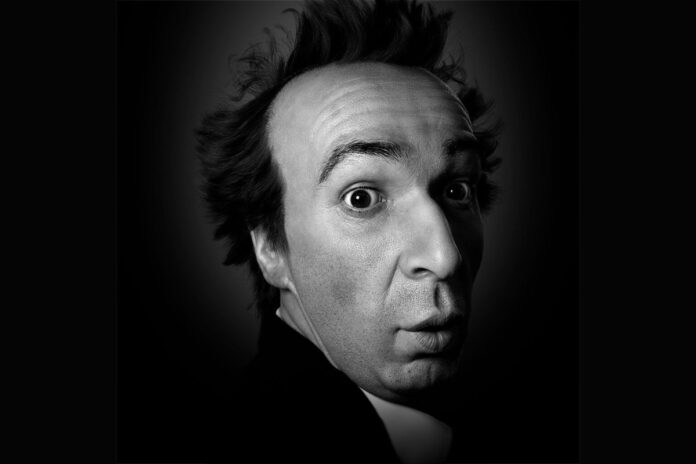Life History of Roberto Benigni
Roberto Benigni, born October 27, 1952, in Manciano La Misericordia, Italy, is an Italian actor, director, screenwriter, and comedian, internationally celebrated for his energetic comedic style and poignant storytelling. With roots in Italian cinema and a career that has spanned several decades, Benigni is best known for creating and starring in the Oscar-winning film Life Is Beautiful, a touching story set during the Holocaust that balances humor with emotional depth.
Early Life and Background
Benigni was raised in a humble, rural Italian family. His father, Luigi, was a farmer and carpenter, and his mother, Isolina, was a homemaker. Growing up in a working-class environment provided Benigni with rich, real-world experiences, often forming the foundation of his humor and storytelling style. As a young man, he discovered a passion for the performing arts and pursued theater and acting in Florence, eventually studying under prominent Italian stage directors.
Early Life and Beginnings of Roberto Benigni
Roberto Benigni was born on October 27, 1952, in Manciano La Misericordia, a village near Castiglion Fiorentino, Italy. His mother, Isolina Papini, worked as a fabric maker, while his father, Luigi Benigni, was a skilled bricklayer, carpenter, and farmer. Roberto was raised in a close-knit, religious family with three older sisters—Bruna, Albertina, and Anna. His early life was shaped by his Catholic upbringing, and he served as an altar boy. Although he distanced himself from religion in his early adulthood, he later rekindled an interest in spiritual topics and eventually returned to Catholicism.
Benigni’s first steps into acting were on the theater stage in 1971 in Prato. Later that year, he moved to Rome, where he joined the experimental theater scene, taking on roles and directing some of the productions. In 1975, his career gained momentum with Cioni Mario di Gaspare fu Giulia, a play by Giuseppe Bertolucci, which marked his first major success in theater.
Benigni’s talent caught the nation’s attention in the late 1970s when he appeared in Onda Libera, a satirical television series on RAI2 produced by Renzo Arbore. His performance of The Hymn of the Body Purged, a humorous piece about bodily functions, caused a scandal due to its provocative nature, leading to the show’s suspension. In 1977, Benigni made his film debut in Berlinguer, I Love You (Berlinguer ti voglio bene), directed by Giuseppe Bertolucci.
As his popularity grew, Benigni starred in another Arbore show, L’altra domenica (1976–1979), where he played a mock film critic who humorously reviewed movies without watching them. Around this time, filmmaker Bernardo Bertolucci cast Benigni in a minor, silent role in La Luna, which introduced him to a wider audience, although its reach was limited in the United States due to its controversial themes.
Training and Early Career
Benigni initially trained in theater and began performing in small venues across Italy, establishing himself as a unique comedic talent. His breakthrough came in the early 1970s when he joined Italian television and comedy shows. His improvisational style and on-the-edge humor quickly set him apart, capturing the public’s attention and building his reputation. His early roles on television and film in the 1970s, including works like Berlinguer ti voglio bene (1977), showcased his ability to mix satire, political commentary, and slapstick.
Rise to International Fame
By the 1980s and 1990s, Benigni’s career reached new heights with his iconic film roles. His breakthrough in the English-speaking world came with his performance in Jim Jarmusch’s Down by Law (1986). However, it was Life Is Beautiful (1997), a film he directed, co-wrote, and starred in, that earned him international fame. The film, which tells the story of a father using humor to shield his son from the horrors of a concentration camp, won numerous awards, including three Academy Awards, with Benigni receiving Best Actor – a rare achievement for a non-English performance.
Legacy and Influence
Benigni’s work in Life Is Beautiful left a lasting impact, challenging the boundaries of comedy in portraying tragic historical events. His unique style influenced comedians and filmmakers worldwide, showing how humor could be used thoughtfully to explore serious themes. Life Is Beautiful is often referenced in discussions on the blending of comedy and tragedy, and it stands as a landmark in Italian cinema and Holocaust-related storytelling.
Personal Life and Challenges
Benigni is known for his deeply personal connection to his work, drawing from his own life experiences. His marriage to actress Nicoletta Braschi has been a vital part of his life and career, as she has often collaborated with him on screen. Despite his vibrant on-stage persona, Benigni has faced personal challenges, including dealing with the pressures of international fame and remaining true to his roots in Italian cinema.
Later Years and Legacy
In his later career, Benigni continued to work on select film projects and shifted focus to reciting and interpreting The Divine Comedy by Dante, passionately delivering these performances to audiences across Italy and beyond. His interpretations of Dante’s work were celebrated, underscoring his versatility and passion for Italian culture and literature. Benigni remains a revered figure in Italy and across the world, celebrated for his contributions to both film and Italian cultural heritage.
Major Recordings and Awards
Among his accolades, Life Is Beautiful stands out as his most awarded work, earning him three Academy Awards: Best Actor, Best Foreign Language Film, and Best Original Score. His talent and dedication have been recognized with multiple awards, including a César Award and numerous David di Donatello Awards in Italy. His film and television work has also been commemorated with lifetime achievement awards, further solidifying his legacy.
Honors and Recognition
Roberto Benigni’s contributions to cinema and culture have been celebrated through various honors and distinctions. In 1999, he was awarded a Golden Palm Star on the Walk of Stars in Palm Springs, California, recognizing his impact on the arts and his influence on international cinema.
Honorary Degrees
In addition to his achievements in film, Benigni has received numerous honorary degrees from prestigious institutions around the world. These honors reflect his cultural impact and intellectual contributions across disciplines.
- 1999 – Honorary Doctorate in Philosophy from Ben-Gurion University of the Negev, Beersheba, Israel.
- 2002 – Honorary Doctorate in Letters from the University of Bologna, Italy.
- 2003 – Honorary Degree in Psychology from Vita-Salute San Raffaele University, Milan, Italy.
- 2007 – Honorary Doctorate in Letters from the Katholieke Universiteit Leuven, Belgium.
- 2007 – Honorary Degree in Modern Philology from the University of Florence, Italy.
- 2008 – Honorary Doctorate in Letters from the University of Malta.
- 2008 – Honorary Degree in Communication Arts from Touro University Rome, Zagarolo, Italy.
- 2012 – Honorary Degree in Modern Philology from the University of Calabria, Italy.
- 2012 – Honorary Doctorate in Letters from Aristotle University of Thessaloniki, Greece.
- 2015 – Honorary Doctorate in Laws from the University of Toronto, Canada.
- 2024 – Honorary Doctorate in Fine Arts from the University of Notre Dame, United States.
These honors not only celebrate Benigni’s artistic legacy but also underscore his influence in the realms of literature, philosophy, and communication, confirming his status as a respected figure in the arts and humanities.
Personal Life and Character
Benigni is often described as warm, humorous, and intensely passionate about his work. His connection with the audience and dedication to making meaningful art are central to his character. Known for his humility and genuine kindness, Benigni’s character shines through his interactions with fans and fellow artists. His playful and kind-hearted spirit, mixed with intellectual depth, has endeared him to audiences around the world, marking him as a beloved figure in international cinema.
Roberto Benigni’s legacy is one of laughter, compassion, and deep artistic integrity. His contributions have transcended the Italian cinema landscape, resonating globally and leaving an enduring influence on the art of storytelling.
Frequently Asked Questions (FAQs) about Roberto Benigni
1. Who is Roberto Benigni?
Roberto Benigni is an Italian actor, comedian, director, and musician, widely recognized for his unique blend of humor and emotional storytelling. He is best known for his Oscar-winning film Life Is Beautiful, which he directed, co-wrote, and starred in.
2. What is Roberto Benigni’s most famous movie?
Life Is Beautiful (1997) is Benigni’s most famous work. The film earned three Academy Awards, including Best Actor for Benigni, and remains celebrated for its mix of comedy and tragedy set during the Holocaust.
3. Has Roberto Benigni won any awards for his work?
Yes, Benigni has received numerous awards throughout his career, including three Oscars for Life Is Beautiful. Additionally, he has been honored with awards from Italian and international film festivals and holds a star on the Palm Springs Walk of Stars.
4. What are some of Roberto Benigni’s other notable works?
Aside from Life Is Beautiful, Benigni is known for his roles in Down by Law (1986), Johnny Stecchino (1991), The Monster (1994), and his more recent work interpreting Dante’s The Divine Comedy.
5. Did Roberto Benigni receive any honorary degrees?
Yes, Benigni has received several honorary degrees from universities around the world. Notable honors include degrees from Ben-Gurion University of the Negev, University of Bologna, Katholieke Universiteit Leuven, and the University of Toronto.
6. Where was Roberto Benigni born?
He was born in Manciano La Misericordia, a small town near Castiglion Fiorentino in Tuscany, Italy, on October 27, 1952.
7. Is Roberto Benigni married?
Yes, Roberto Benigni is married to Italian actress Nicoletta Braschi, who has been his collaborator in many of his films. They married in 1991 and have since shared a close personal and professional relationship.
8. What kind of roles did Roberto Benigni play early in his career?
In his early years, Benigni took on roles in Italian theater and experimental television. He became known for his bold comedic style, often using satire and political humor, which brought him popularity on Italian TV shows in the 1970s.
9. How has Roberto Benigni influenced cinema?
Benigni has had a significant impact on both Italian and international cinema, particularly with his work in Life Is Beautiful, which opened new possibilities for using comedy to explore serious themes. His influence can be seen in how humor is used thoughtfully in film to address sensitive subjects.
10. What has Roberto Benigni done outside of acting?
Aside from acting and directing, Benigni is known for his public performances interpreting The Divine Comedy by Dante Alighieri, which showcases his dedication to Italian literature and culture.
11. What are some challenges Roberto Benigni faced in his career?
Benigni’s career has been marked by both praise and controversy, such as the censorship of his early television show Onda Libera due to its provocative content. Balancing fame and remaining true to his cultural roots has also been a challenge in his career.
12. Is Roberto Benigni involved in any charitable or cultural activities?
Yes, Benigni is known for promoting Italian culture and literature, especially through his recitations of The Divine Comedy. His work has inspired many to explore and appreciate Italian heritage and history.

